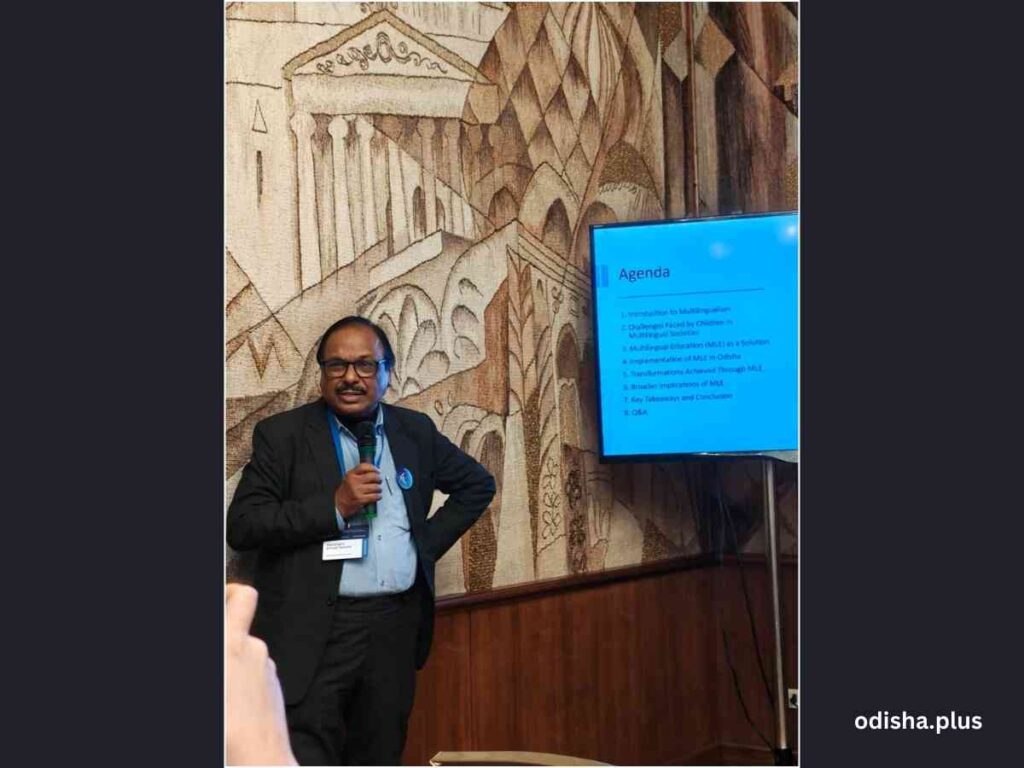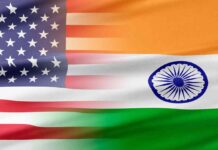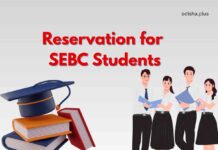The Congress aimed to provide a global platform for linguists to exchange insights and research on addressing critical challenges in the field of language science
OdishaPlus Bureau

The First Eurasian Congress of Linguists, 2024, was held in Moscow from December 9 to 13, 2024. It was organized by the Institute of Linguistics of the Russian Academy of Sciences with the support of the Ministry of Science and Higher Education of the Russian Federation and dedicated to the 300th anniversary of the Russian Academy of Sciences.
The purpose of the Congress was to create a platform for exchanging views and experiences, where linguists from all over the world presented their research on solving the most pressing problems of the science of language. One of the tasks of the Congress is to acquaint young researchers with the latest achievements in the study of language in all its diversity. Public discussions on socially significant linguistic topics will also be held for a broad audience within the framework of the Congress.
Within the Congress’s framework, eight plenary reports, 18 oral parallel sections, 10 parallel round tables, and two extensive poster sessions are planned.
Oral parallel sections cover all the significant problems of linguistics, including all groups of languages of Eurasia and other regions of the world and general linguistics problems.
Oral parallel sections will focus on the following research areas: Linguistic diversity and variability: diachronic, typological and areal aspects; Theory of Language from Phonetics to Pragmatics, Oral Speech and Multichannel Communication; Psycho- and neurolinguistics; computational linguistics and artificial intelligence, Sociolinguistics, Indo-European languages of Europe, Russian, Turkic languages, Languages of the Caucasus, Iranian Languages, Semitic language, Languages of South Asia, Uralic languages, Languages of Siberia, the North, the Russian Far East, and adjacent areas, Languages of China and Southeast Asia, Languages of Africa, General direction (reports on other topical issues of linguistics, including languages of other areas). Besides, poster sessions were also organized.
The Plenary speakers of the Congress were Alexey A. Gippius (HSE University and Institute of Slavic Studies of the Russian Academy of Sciences, Moscow, Russia), Evgeny V. Golovko (Institute for Linguistic Studies of the Russian Academy of Sciences, St. Petersburg, Russia), Ayesha Kidwai (Jawaharlal Nehru University, New Delhi, India), Johanna Nichols (University of California, Berkeley, USA and HSE, Moscow, Russia), Martin Haspelmaet (University of Leipzig, Leipzig, Germany), Alan Chenky (Amsterdam, Netherlands), Baoya Chen (Peking University, China), Juha A. Janhunen (Helsinki, Finland and OR RAS, St. Petersburg, Russia).
The congress was attended by more than 1000 scholars across the globe. There were 8 plenary sessions, 18 oral sessions, 22 round table sessions, 6 public lectures, and two exhibitions of language museums. There were 185 oral presentations, 154 round table sessions, and 280 poster presentations, and total person participation was 539 out of 677, while remote participation was 138. Presentation in Russian language was 461 and in foreign languages 261.
Dr. Mahendra Kumar Mishra, Trustee and National Advisor of the Language and Learning Foundation (LLF), presented a paper on ‘Overcoming Linguistic Challenges in Multilingual Societies: The Case of Odisha’s MLE Initiative,’ which highlighted the critical role of Multilingual Education (MLE) in fostering inclusive and equitable education systems.
Dr. Mishra’s presentation focused on children’s unique challenges in multilingual societies, particularly in India, where linguistic diversity is a hallmark of its rich cultural tapestry. He emphasized the importance of addressing language barriers in education to prevent high dropout rates, cultural marginalization, and the erosion of valuable linguistic and cultural heritage.
The presentation showcased the successful implementation of MLE in the Indian state of Odisha, where LLF has been instrumental in promoting this transformative approach. The Odisha MLE initiative has demonstrated remarkable outcomes, including increased enrolment and retention rates, revitalization of tribal languages and cultures, and a significant boost in the self-esteem of tribal children.
Dr. Mishra’s insights and the successful MLE model in Odisha have far-reaching implications for other regions grappling with similar challenges. By embracing MLE, educational systems can bridge linguistic and cultural divides, empower marginalized communities, and ensure that every child has the opportunity to thrive in an inclusive and enriching learning environment.
Addressing the challenges, Dr. Mishra highlighted the significant challenges children face in multilingual societies, including language barriers in education, cultural marginalization, and the potential for loss of cultural identity.
He emphasized the transformative power of MLE, where instruction begins in children’s mother tongues, gradually transitioning to other languages. This approach fosters a deeper understanding and enhances learning outcomes.
Dr Mishra presented the successful implementation of MLE in the Indian state of Odisha, showcasing how this approach has led to increased enrolment, improved retention rates, and revitalization of tribal languages and cultures. He emphasized the broader implications of the Odisha model, highlighting its potential for successful implementation in other multilingual regions globally.
The government of India has taken steps to promote MLE in Odisha in more schools with linguistic diversities which Language and Learning Foundation has played a pioneering role in introducing MLE in seven states of India using children’s home languages in the classroom providing foundational literacy in the cultural context of children’s learning environment.
#MLE #LinguisticsCongress #EurasianLinguists #Moscow #LanguageDiversity #Odisha #CulturalHeritage #LinguisticChallenges #Multilingualism #LanguageLearning #TribalLanguages
























